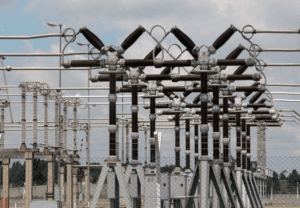Turning Nigeria’s infrastructure investment orientation to broad-based macro economic approach
Infrastructure gaps have been on negative records, largely forming a pulling string against the Nigerian economy. It is on record that the Nigerian government needs about US$100 billion annually to address the nation’s infrastructure deficits. It remains indisputable that infrastructure remains a pushing impetus to drive the economy for growth. However, it is glaring and disheartening that the profile of infrastructure to drive the Nigerian economy, is largely absent. The subsisting records reflect an infrastructure stature which is largely irreconcilable with what is necessary to vehemently drive the economy for formidable growth. It is glaring that unsatisfactory sectoral performances have been largely linked to poor infrastructure as a pronounced deficiency among debilitating factors affecting the deliverables of several sectors.
It is indisputable that, to have a change in the records of sectoral performances and overall, the economy at large, the deficits in infrastructure must be well addressed. A move towards this end must be deliberate, well thought-out and consciously driven with pragmatic approaches.
While the orientation on infrastructure appears to be more socially based, with emphasis on such amenities as roads, rail, water, electricity, among others, it is pertinent that a reorientation with broad economic macroscopic approach is what is needed for the Country. The myopic social concentric approach has left the Country with miniature provisions, of which in its minute coverage, has left the economy malnourished away from the weight of infrastructure base it needs to blossom. Redirecting the orientation for such broad-based macro-economic approach would demand systemic delineation with sectoral concentration bearing far reaching impacts on the economy at large.
In this regard, sectors which bear massive potentials but yet, not receiving the right infrastructure investment would be brought to fore to receive the force of infrastructure impetus, required to turn potentials into actualised productivity for growth of the economy. For instance, the Information and Communication Technology sector, is one which recently has become a formidable force with a civilisation that is revolving operations and activities of human endeavours around the technologies of the sector. However, it is unimpressive that, though the government may be turning some attention into it, yet not at the level of a substantial force needed to optimise the potentials.
Reflecting on the benefits of the sector, pari passu the infrastructure gap and the localised focus of the Government, the Lagos Chamber of Commerce and Industry (LCCI), while identifying poor infrastructure as the greatest socio-economic development challenge for Nigeria, harped on the need to focus attention on critical potentials as digital infrastructure.
At the 2022 ICTEL EXPO held in Lagos, last week, with the theme, “Ensuring Efficient Digital Infrastructure in Nigeria,” the President, LCCI, Dr Michael Olawale-Cole, said the country will reap enormous benefits from developing digital infrastructure. The LCCI president who emphasised the importance of investing in the right digital infrastructure, said, “The 2022 ICTEL EXPO is giving deserved focus to Digital Infrastructure because, over the decades, next to corruption, poor infrastructure is Nigeria’s greatest socio-economic development challenge. The ones commonly focused on are Power, Roads, and Water. We dare say however that, as critical as the listed ones and indeed others not listed are, if Nigeria gets Digital Infrastructure right, the benefits to the nation’s ICT and Telecommunication sectors and on government’s digital economy agenda would be enormous. Indeed, the multiplier effects of an effective and efficient digital infrastructure in our country on national development cannot be overemphasized. This is clearly because virtually everything is now done electronically, thereby making issues like access, internet of things, Right of Way, broadband penetration, policies, regulation, cyber security etc matters of great concern.”
Olawale-Cole emphasised the need to adequately interrogate the present state of Nigeria regarding digital infrastructure, evaluate the challenges and chart the way forward. “The questions then include: Where are we in Digital Infrastructure? What are the challenges and the way forward? And who does what, and when?” he queried.
Such thought-evoking questions are essentially necessary for perusal, particularly at a time the economy is suffering from deep seated deficiencies, demanding pragmatic interventions strong enough to remodel its working patterns. For such to find proper expression, shifting away from the traditional orientation of socio-centric approach to infrastructure investments is pertinent. For digital infrastructure, the need for improvement on the attention turned to these potentials is paramount. While such appreciable investments such as those bordering on laying fibre optics cables for broadbased Fibre Metro Network connection has commenced in Lagos over thousands of kilometres, it is saddening that many states are not positively directed in this orientation. Such infrastructures are sine qua non for a smart city where the developed world are living in. For Nigeria to catch up with their pace of development, a quick embrace of such civilisation in infrastructure investment must be the anchor for a shift from the localised prevailing tradition which has left the Nigerian economy as a shadow of itself with debilitating impacts on the fabrics of the Country.




